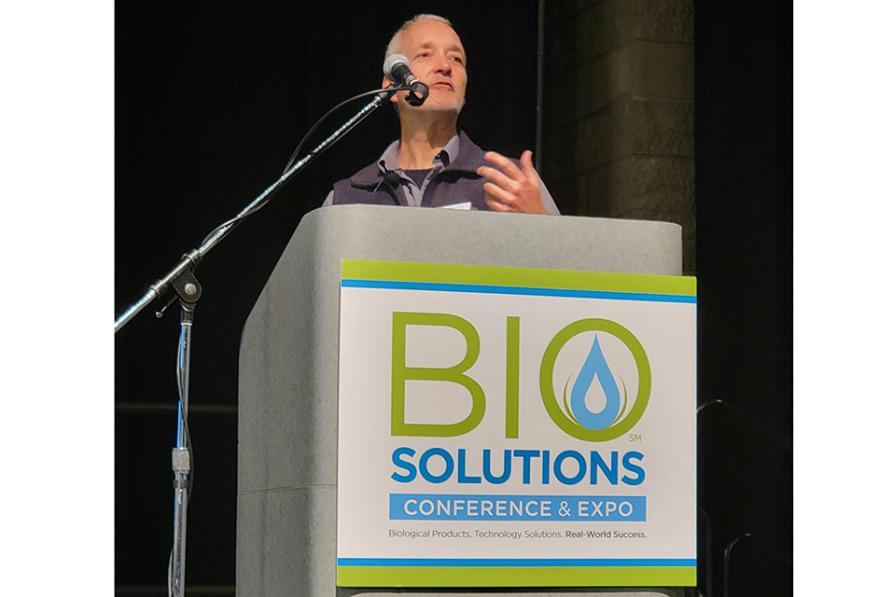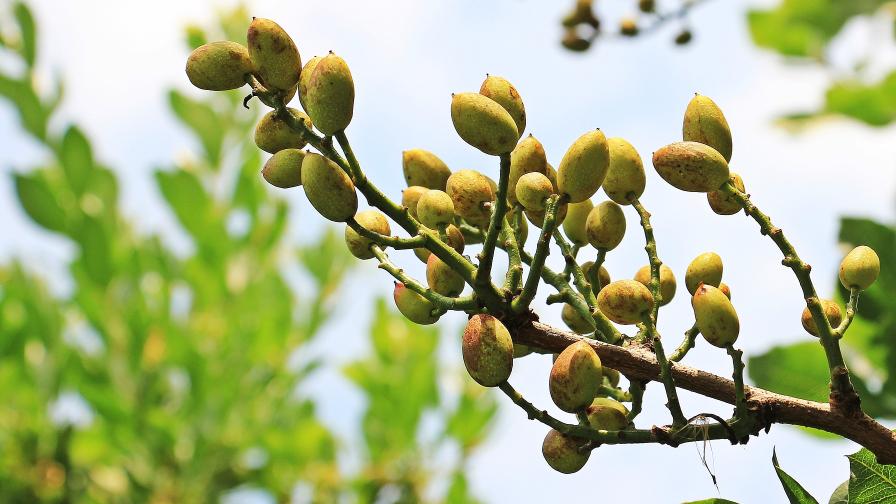How Frog Hollow Farm Commands $10 a Pound for Its Produce
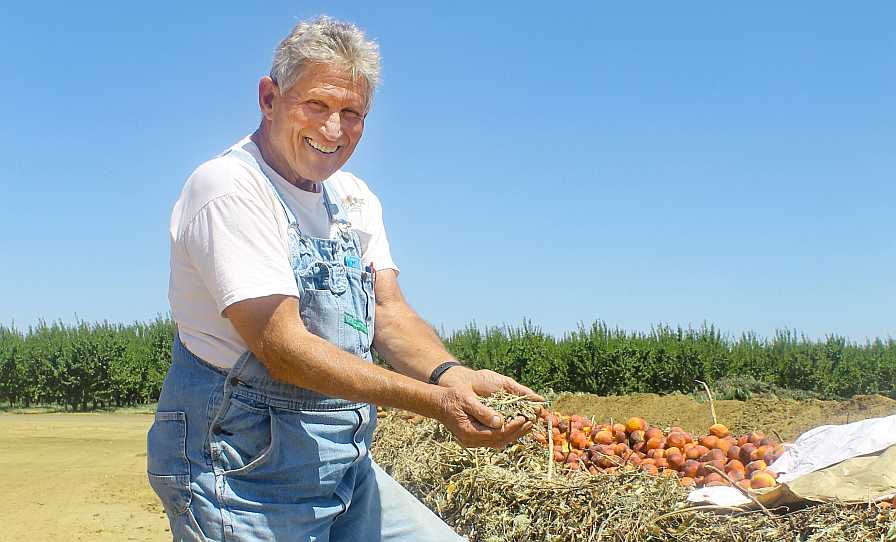
Al Courchesne of Frog Hollow Farm says making your own compost isn’t cheap, and it takes a lot of work, but he believes it makes all the difference in the quality of his fruit.
Photo by David Eddy
Al Courchesne knows he’s got a good thing going. Courchesne goes by “Farmer Al” and cultivates the image right down to his overalls, but he’s no hick. His Frog Hollow Farm is in a near ideal location about 50 miles east of San Francisco, about as close to the Bay Area’s high farmer’s market prices as one can get, while his stone fruits thrive from the heat of the nearby San Joaquin Valley.
But it’s not just those in the region who enjoy Courchesne’s fruit or are willing to pay the high prices. On the farm’s website, a 5-pound box of organic yellow peaches — the exact variety is posted — runs $50, plus shipping. Ditto for organic plums, and the price holds for much of the fruit he grows.
“Those prices are a result of great service, dependability, establishing relationships, and providing the highest quality of fruit that money can buy anywhere,” he says. “There is a difference between our fruit and other people’s fruit. We didn’t get there overnight.”
About the only thing Courchesne seems to have done conventionally in his career was farm that way for his first 13 years. He grew up in nearby Berkeley, with no background in farming, and began his career teaching history and social studies to eighth graders after moving to Hawaii. But when he reached his late 20s, he read the book “Five Acres and Independence” by M.G. Kains and decided to grow his own food. After farming a half-acre of vegetables next to a Chinese cemetery in Honolulu for three years, he realized he wanted to own his farm, but the land in Hawaii was too costly, and he wanted to be close to home.
In 1976, he found that ideal location, a 13-acre parcel in Brentwood, CA, and that farm has grown to a total of 280 acres. Most of it is devoted to peaches and other stone fruits, but he also farms a wide variety of other crops, including pears, apples, persimmons, pomegranates, table grapes, olives, mandarins, and mulberries.
THE FOUNDATION
Courchesne believes that whatever a farmer can do to improve the soil is time well-spent and says he doesn’t believe he truly hit his stride as a producer of top-dollar fruit until he started to make his own compost.
“I’ve always wanted to do my own compost since I started farming,” he says. “The foundation of good farming is the soil. What’s in the fruit comes from the soil. It’s the foundation for quality fruit — and that’s what we’re known for.”
The thing to get straight right off the bat in producing your own compost, he says, is that the ratio of ingredients is critical. Trees like compost that’s fungally dominant. Vegetables, on the other hand, like compost that’s bacterially dominant. In fungal compost, carbon must dominate. That works out well because it means adding wood, such as prunings and anything else out of the orchards. The carbon material must be balanced with a nitrogen material. For that, Courchesne prefers horse manure, as his urban-fringe property is surrounded by riding stables.
“They have to get rid of it, so for them it’s a benefit. They bring it in by the ton, and we have a hard time keeping up with them,” he says, nodding at a horse trailer passing by. “We don’t pay them, and they don’t pay us. It’s a nice arrangement.”
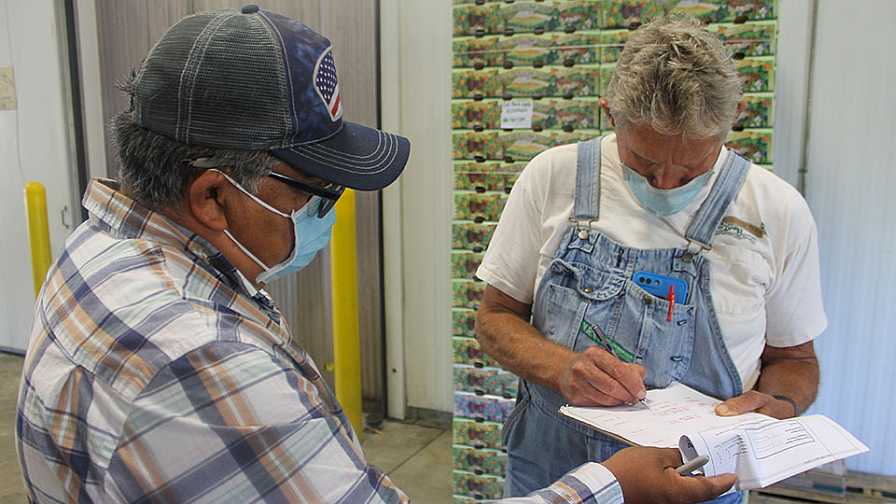
Frog Hollow Farm Packing Shed Manager Abel Tapia, left, reviews orders with Al Courchesne. The masks seem to be working. As of mid-August, none of Courchesne’s 150 full-time employees had come down with COVID-19.
Photo by David Eddy
NO ADDITIVES
Courchesne doesn’t buy anything to put in the compost, but it’s not a cheap process because of all the labor that goes into producing the 3,000 tons per year used at Frog Hollow Farm. In addition, there are up-front equipment costs.
First, you must have something to mix the compost, which at the very least means a tractor with a front-end loader. Most growers have such equipment, so he tells those just starting out making their own that it will work just fine — for now.
“You can make compost with just that,” he says, “but I’ve learned if you want to make really good compost you should buy a compost turner.”
The problem with the turner is it is a highly specialized piece of equipment. In fact, he says it only has the one purpose, to turn compost, and that’s it. That probably wouldn’t be so bad if a unit didn’t cost $30,000, he says.
Making compost also takes an awful lot of water. For example, he points to a standard pile he just recently formed. It’s 3 feet high and 6 feet wide, and he uses 1,000 gallons every 70 feet. To keep that compost moist, he needs access to a large water tank. Courchesne says his 1,000-gallon tank, completely outfitted with hoses, etc., ran another $10,000.
Finally, the compost must be applied, so a compost spreader is necessary. Courchesne paid $20,000 for his. “They tend to be custom-made,” he says. “It’s not something you just buy off the shelf.”
There are other pieces of equipment needed to make your own compost as well, he says, such as a 3-foot compost thermometer. They only run a few hundred bucks but are still necessary because even after achieving the correct balance between carbon and nitrogen, you must monitor the compost’s moisture, texture, and temperature.
GET EXPERT HELP
Growers can certainly do their own monitoring, but Courchesne recommends hiring a consultant if you want to make quality stuff.
“We have a compost expert, a microbiologist who advises us and monitors temperature, texture, and moisture,” he says. “Also, you should get a detailed analysis, which is, in fact, required by the state of California.”
Of course, state laws vary. But if you want to be certified organic in California, he says you must also share those records with California Certified Organic Farmers. In addition, now with the passage of the federal Food Safety Modernization Act (FSMA), U.S. growers must comply with those rules, too. Add it all up, and it may pay to hire an expert.
“Besides, if you’re going to do it,” he says, “you want to make sure it’s done right.”
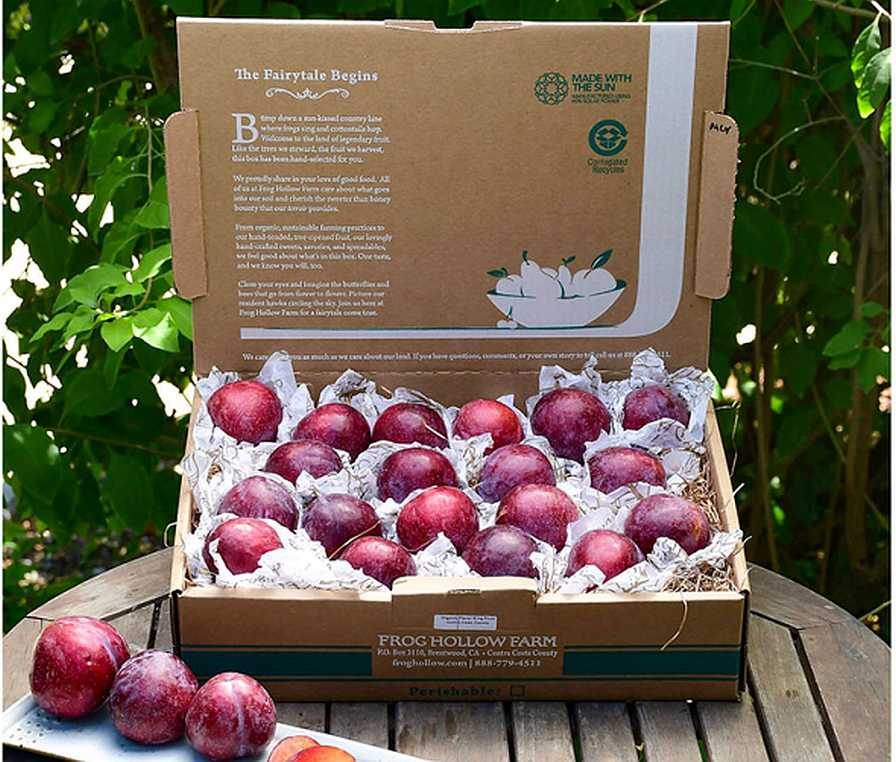
The Frog Hollow Farm Fairytale Begins in each packed box of produce.
Photo courtesy of Frog Hollow Farm
TELL YOUR STORY
Marketing experts often advise growers to tell their operation’s story to ingratiate themselves to potential customers. “Farmer Al” Courchesne definitely took that advice to heart. He said the name “Frog Hollow Farm” came to him because there are a lot of frogs in the irrigation canal that runs along his property, and the “Hollow” lends a storybook theme.
“It’s kind of a return to nature,” he says, “which makes sense if you’re an organic farmer.”
This box (above) of Pluots is available for purchase online at the Frog Hollow Farm website, but the tale also appears on boxes displayed at retailers. The panel on the box reads:
The Fairytale Begins — Bump down a sun-kissed country lane where frogs sing and cottontails hop. Welcome to the land of legendary fruit. Like the trees we steward, the fruit we harvest, this box has been hand-selected for you.
We proudly share in your love of good food. All of us at Frog Hollow Farm care about what goes into our soil and cherish the sweeter than honey bounty that our terroir provides.
From organic, sustainable farming practices to our hand-tended, tree-ripened fruit, our lovingly hand-crafted sweets, savories, and spreadables, we feel good about what’s in this box. One taste, and we know you will, too.
Close your eyes and imagine the butterflies and bees that go from flower to flower. Picture our resident hawks circling the sky. Join us here at Frog Hollow Farm for a fairytale come true.
At the bottom of the panel, customers find the phone number and website of Frog Hollow Farm, where Autumn Flame peaches were selling this past summer for $35 for a 3-pound box.




